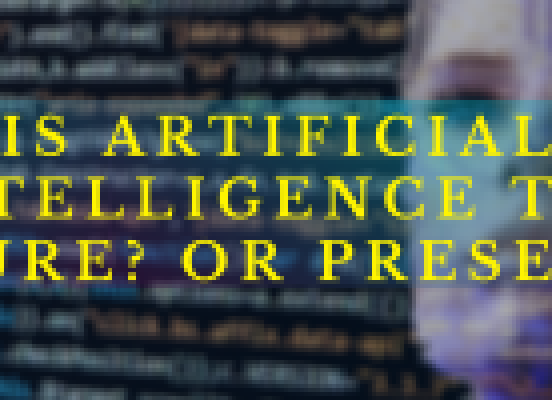
Is Artificial Intelligence The Future? Or Present?
As soon as we hear the words Artificial Intelligence, a bunch of robots, supercomputers, and most importantly the future, comes to our mind. However, AI includes a little more than that. Artificial Intelligence is the simulation of human intelligence into man-made machines that are programmed to perform and think like humans. The concept of AI is derived from various branches of science like physics, neuroscience, mathematics, computer science, and more. John McCarthy, who is referred to as the father of Artificial Intelligence was a pioneer in the fields of AI. In 1995, John McCarthy coined the term ‘Artificial Intelligence’, which he proposed in the Dartmouth Conference in 1956. The basic idea behind this concept was to train machines in such a way that they could replace humans in terms of efficiency and effectiveness.
Now, what were the major causes of the development of Artificial Intelligence?
As we know, humans are bound to make mistakes. Sometimes even a minor error can cause troubles for a certain project. This brings out the first advantage of AI – Reduction of human error or more accuracy. A machine does more accurate work than humans. Let’s take an example, the field of mathematics requires many calculations, and there is a big possibility of making an error while performing those calculations. A machine gets us accurate results of those calculations. Another beneficial factor of AI is that it can do repetitive jobs without it being redundant. If humans have to perform the same job more than once, the efficiency begins to decrease. This doesn’t happen in the case of a machine. A machine can perform the same command number of times. Human beings also require rest after time intervals. A machine can operate 24*7. Thus, Artificial Intelligence not only provides us with digital assistance but also reduces human efforts.
Have we experienced the full potential of Artificial Intelligence?
The obvious answer here would be no. There are a lot of new inventions that would be coming our way in the future and Artificial Intelligence is going to be a big part of that. It will a whole new way of looking at physics and other branches of science. It will change the way we look at this world. Some of the most recent advancements in the field of AI include Speech Recognition, Biometrics, Virtual Learning, and Decision Management. We may have not yet completely seen the biggest AI achievement but we can say that AI isn’t just the future of technology, it’s the present too.
Can Artificial Intelligence be considered dangerous?
Any scientific advancement can be used to create chaos. Technology has taken a much wider turn in our world. So yes, Artificial Intelligence can also be used in a negatively and dangerously if it falls into the wrong hands. Some of the most common and real dangers of AI include: –
- Privacy Invasion: Privacy is a legal right that every human deserves. However, there is a possibility of it being threatened due to Artificial Intelligence. The data gathering abilities of AI also mean that a timeline of your daily activities can be created by accessing your data from various social networking sites.
- Autonomous Weapons: We are all quite familiar with the movie “Age of Ultron” where the robot takes over the human race. It may sound unrealistic but killer robots are a very real possibility and a threat to our world. Killer robots are military robots that can search for their targets and eliminate them. Destroying these robots would be very difficult. Keeping this issue in mind, it was decided in 2018 that the final command would have to be given by a human in the case of killer robots. However, this problem can easily be increased with the further advancement of technology.
Even after carefully examining the pros and cons of AI, nothing is certain. The future is uncertain. It may bring about advancements in power, advancements in medicine, or it may affect the human race, and that future will be here faster than we think.





